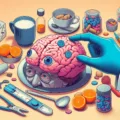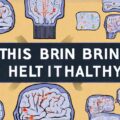Counting Your Blessings
Life can sometimes feel like a heavy burden. When challenges arise, it’s easy to focus only on the negative. Practicing gratitude can lift your spirits and give you a fresh perspective. There are many simple, free tools you can use to cultivate gratitude in your daily life.
Gratitude Journaling
Keeping a gratitude journal is one of the most effective ways to become more thankful. Set aside 5-10 minutes each day to jot down a few things you’re grateful for. They can be big or small – a good meal, quality time with loved ones, a pleasant interaction with a stranger. Over time, you may begin to notice more blessings in your everyday life.
Share Your Gratitude
Verbalizing what you’re grateful for, even in passing, can boost your mood. Make a habit of telling friends and family when you appreciate them. Send thank you notes or emails when someone does something thoughtful. Express gratitude to service staff and strangers who brighten your day with a kind word or deed.
Give Thanks Before Meals
Cultures and families often say a prayer of gratitude before meals. Whether you’re religious or not, take a moment to appreciate the blessing of having food on your plate. You can bow your head, share what you’re thankful for, or simply sit in silence. Teaching children this practice helps them develop gratitude from a young age.
FAQ
Why is gratitude important?
Practicing gratitude has been linked to improved mental and physical health, including lower blood pressure, reduced anxiety and depression, and better sleep quality. It can also strengthen relationships and make you more resilient during tough times.
How can I be more grateful?
Some easy ways to cultivate gratitude include keeping a gratitude journal, praying or meditating on what you’re thankful for, sharing your gratitude with others, and taking time to appreciate the everyday blessings in your life.
Does gratitude really change your brain?
Yes, studies show that regularly practicing gratitude physically changes the brain, making people more joyful over time. Brain scans reveal that gratitude activates reward and empathy circuits, leading to the production of feel-good chemicals like dopamine and oxytocin.
Can being grateful make you happier?
Absolutely. Multiple research studies confirm that people who consciously practice gratitude experience greater happiness and life satisfaction. They also report having more positive emotions, stronger relationships, better sleep, and even an improved immune system.
How do you teach kids to be grateful?
Good ways to teach children gratitude include modeling thankful behavior yourself, celebrating their efforts, encouraging them to thank others, having them keep a gratitude journal, doing community service together, and saying prayers of thanks. Make it a regular practice.









